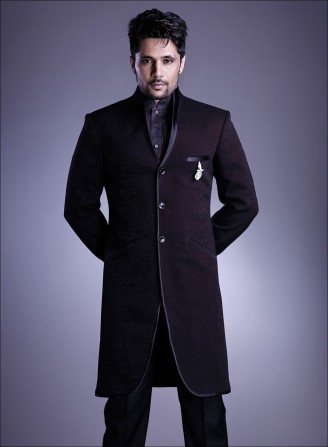In Ancient Warfare Magazine VIII.I, regular contributor Sidney E. Dean wrote an article titled “David’s Insurgency Against Saul: The Man Who Would be King”, and it’s a challenging read for those who grew up on the Biblical stories of the great King David. History isn’t always easy to swallow, the study of it is supposed to try and find the whole picture, not just half of it, and that’s what makes Dean’s article so uncomfortable, and that’s also what makes it so fascinating. If anything, at the end of the article the hero King David is made that much more interesting, and even if not all suppositions are truth, the saintly image of David becomes more human, more relatable. My point in this summary isn’t to necessarily comment, but to share, so, if you’re not willing for your understanding of who David was to be challenged, if you’re not prepared to be made uncomfortable, stop reading. Because unlike Dean’s article, I didn’t start with harsh vocabulary almost purposefully trying to sift readers before settling into a less emotionally charged and academic argument.
Dean tells us that this emerging interpretation of King David’s life is one that is gaining momentum in the fields of Biblical studies, history, and archaeology and that these conclusions are based more on what the sources don’t tell us than what they do, and that means taking what we do know about David’s rise to power and trying to fill in those gaps based on starting and ending points. The results of this study are that David wasn’t just an innocent victim of King Saul’s jealousy, but was a man purposefully driven to gain power, allegiances, and solidify support for his ultimate goal of kingship by waging insurgent warfare even at the expense of his own people.
The primary source for David’s biography are the Biblical books of 1&2 Samuel and 1 Kings, the books of Samuel offering the bulk of the biography, and Dean points out that Samuel’s writing is similar to that of apologists. Accepting this is one of the keys for getting to know David the man rather than David the victim. We know that David was a warrior, a man who had no problem hunting down 200 Philistines and cutting-off their foreskins for a dowry (only 100 were asked for), and the Bible remembers David as a musician, a shepherd, a man after God’s heart. Dean only adds to this image: you don’t kill and mutilate 200 men as a dowry and fight on behalf of your enemy and not have greater designs than playing a passive, survival waiting game.
Dean quickly overviews David’s transition from shepherd to a national war hero under King Saul noting that as the youngest of many sons of a wealthy land owner, David would have been well educated but his prospects of inheritance were non-existent meaning his only option for gaining wealth and advancement would be through the military. He gained Saul’s trust becoming part of his inner-circle and soon found himself promoted to leading military missions before being given the prestigious role of commanding Saul’s “men of war” which could refer to the professional portion of the army rather than the levied men each tribe was obligated to provide for campaign season. David continued to grow in popularity winning the hearts of not only the people, but also Saul’s retinue of courtiers and royal guard, forming a deep bromance with Saul’s son, Jonathan, and eventually marrying Saul’s daughter, Michal. But Saul began to get concerned at the height to which David had risen in his court, and while Samuel writes that Saul had become paranoid, it’s not a stretch to believe that Saul had become nervous about David’s prestige as it wouldn’t be the first, or last time, that a military commander had a mind to usurp a king. It’s even less of a stretch to believe considering Israel’s geo-political division. Israel was divided into two uneven tribal groupings, Israel and Judah. Saul came from the tribe of Benjamin which was in the larger tribe pool of Israel, while David came from the tribe of Judah. Saul was accepted by all but some historians believe that Saul’s powerbase lay with his tribe rather than the nation meaning that Saul might not have been confident of his support from the entire nation should someone attempt a coup. It is not surprising then that Saul eventually began a campaign to assassinate David which forced David to flee the country. However, interestingly, had David only been scared for his life as Samuel says, David could’ve left Saul’s dominion for any number of nearby lands, not all of them hostile. But rather than finding refuge in a friendly country, David sought refuge with Israel’s chief enemy: Philistia.
Going to the Philistine city of Gath, its king wasn’t interested in accepting David so David went back to hide in Judaea and the city of Adullam which was likely a frontier fort rather than the cave the Bible calls it. Here David’s family and their households joined him (David later sending his parents into the nearby country of Moab where they were safe from Saul), and he began attracting everyone whose misfortunes made them vulnerable (the debtors, discontent, and distressed 1 Sam. 22:1-2). Soon, David had collected for himself an army of 400 men plus their families which suggests structure and order, rather than just a random group of untrained vagabonds; hardly the situation of a man who only feared for his life without further design. From Adullam David led his army into the wilderness, a harsh land ideal for guerilla warfare against a larger army where he continued to attract fighters, very likely including non-Jews and Philistines. David worked towards gaining a foothold in the land he occupied by chasing out the Philistine occupiers of the Judean town of Keilah though Samuel writes that Keilah and surrounding area was loyal to Saul. It would seem likely then that they were not overly appreciative of this “liberation”, if not resented it considering the trade of one enemy occupier for another. From the wilderness David led his small army into insurgent fighting against Saul, his own people suffering as he raided and extorted the supplies and funds he and his men needed.
You may stop reading here and protest that blessed David didn’t extort and kill his own people! But read his story closer and consider one incident Samuel records providing us with evidence that this is actually true. On one particular extortion run on wealthy Judean landowners, one tribal chief named Nabal refused to pay David the money he demanded. In immediate response, David took three-quarters of his men to make it clear to Nabal, and others who might get the same idea, that not paying was not an option as he swore to kill everyone in Nabal’s house and estate by the next morning (1Sam. 25:22). This bloodbath was only averted when Nabal’s beautiful wife, Abigail, humbly met David on the road offering him provisions and asking him to “remember his handmaiden”. This plea has made many to think that David made a deal with Abigail as Nabal suspiciously and conveniently died two weeks later, and David swiftly married his widow (dead husband, David takes the beautiful widow, sound familiar…Bathsheba?). In this roadside meeting, Abigail hailed David as the future king of all Israel, and this is without the Bible accrediting her prophetic gifting. This of course would mean that David’s intention for the throne was known as no divine revelation was given. Even should Abigail have gotten knowledge of the private anointing ceremony Samuel had performed on David years earlier, she declared him king rather than Saul and David didn’t refuse the title. And while more subjective, it is possible that Nabal was a supporter of Saul, and as a tribal chief securing his influence would have been desirable. With Nabal’s wife now in his bed, David could hope to start exerting his own influence and leadership on the tribe. To further support this theory, it was shortly after Nabal’s death that Saul heightened his offensive against David forcing him to again flee back into the Philistine lands- Israel’s enemy, rather than a more peaceful country such as Moab where his parents were.
Coming again to the king of Gath with his army of now 600 seasoned men, the Philistine king accepted David and his company into his service giving him the town of Ziqlag to occupy giving teeth to this buffer zone. From here, David raided Philistia’s and Israel’s enemies even though the latter may have been an ally of Philistia. According to Samuel, David lied to the Philistine King about where he was getting the plunder he was handing over, and to keep his deception, he had a policy of leaving no one alive in a raid so no word of his actions could get back to the king. The truth of how selective David’s raids were have been called into question allowing for the possibility that David was okay with spilling Jewish blood, the example of Nabal giving weight to the possibility.
David served with the Philistine king for sixteen months until Philistia and Israel clashed at Mount Gilboa. Some historians are willing to suggest that David was able to gain influence with Nabal’s clan, the Calebites, and allowed the Philistine king to operate out of these lands giving him a base closer to the Israelites. If David pressed Saul from the south, and the Philistines from the west, Saul would be forced to split his forces. The Philistine king trusted that David had turned his back on his own people and that they had turned their back on him, but the other Philistine nobles were not so convinced, and David was not allowed to join the battle even as he hotly protested this exclusion. Some historians don’t wonder if David actually did stay for the battle to fight on the side of the Philistines. Regardless, the Israelites lost the battle and lost it badly. Saul and his sons died, the army was devastated, and David, though Samuel writes that he mourned Saul, didn’t waste any time in stepping up as the national leader. Saul’s crown, bracelet, and possibly his spear were brought to David giving him the royal insignias, and he gave lavish gifts to over a dozen influential Judean elders guaranteeing their support before leading his small army into the Judean capital of Hebron and occupied it where the elders anointed him king of Judah. The fact that his armed veterans were with him in Hebron should not be overlooked.
While Samuel continually implies that David had no true ambition for the throne outside of the timing of God, David’s continuing actions suggest a man not so calmly waiting for his appointed time. Should the humble and peace seeking David whom Samuel writes of be wholly accurate, then we would expect to see David wanting to work with Saul’s son and heir Ishboshet to organize a joint counter offensive to the Philistine occupiers. But outside of his pact with Jonathan, David had no sympathy for the house of Saul and a bitter war between David and Ishboshet broke out. Ishboshet was forced to relocate the Isrealite capital in face of the advancing Philistines and David continued his campaign of wooing Israelite clans and tribes to his side while also making a political alliance with Geshut (to Israel’s north) by marring the king’s daughter; Ishboshet and Israel were now almost surrounded, north, west, and south. As the war was going in David’s favour, Ishboshet’s commander Abner offered his services to David promising his defection would bring the entire Israelite army as well. David agreed to this, however, David’s own commander, Joab, wasn’t prepared to be a subordinate commander and killed Abner before the deal was done.
Ishboshet was finally assassinated by his own officers ending the war. Israel had no obvious choice for the kingship so the Israelite leaders petitioned David to become their king effectively uniting Israel’s boarders. Once in power, David took over Saul’s harem, a classic move of dominance, and destroyed the rest of Saul’s house, having Saul’s 5 grandsons killed as well as his two illegitimate sons, and though he took Michal back as his wife, he had no children with her. Jonathan’s son Mephiboshet was spared for Jonathan’s sake and brought into David’s household and a realist would say that David put him under house arrest.
This theory about David isn’t without its holes or its counter arguments but there’s enough here to present plausibility and fullness to an otherwise weighted narrative. If you’re interested in reading more, there’s a shortened reading list from Dean’s article below.
Bonus Fact: When David fled from Saul the first time, he did so so fast that he took no food or weapons with him. David lied to a priest in order to obtain both and the weapon he was given was the giant Goliath’s sword which had been kept at the temple in dedication. The Bible never mentions David returning the sword to the care of the priesthood so its reasonable to assume that David kept and used Goliath’s oversized sword as his own throughout his career . And that’s pretty freakin’ awesome. (The Dead Sea Scrolls, Josephus, and the Septuagint tells us that Goliath was 6’9 in height)
Select Bibliography
- R. Alter, The David Story: A Translation with Commentary of 1 and 2 Samuel (New York, 1999).
- G. Greenberg, King David Versus Israel: How a Hebrew Tyrant Hated by the Israelites Became a Biblical Hero (New York 2009).
- B. Halpern, David’s Secret Demons: Messiah, Murderer, Traitor, King (Grant Rapids Michigan 2003).
- J. Kirsch, King David: The Real Life of the Man Who Ruled Israel (New York 2001).
- S. McKenzie, King David: A Biography (Oxford 2002).











